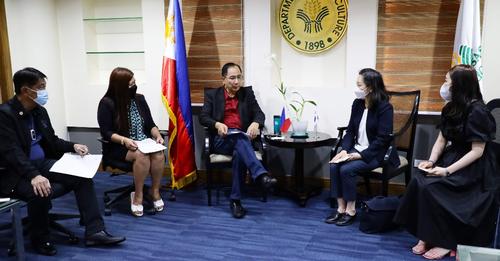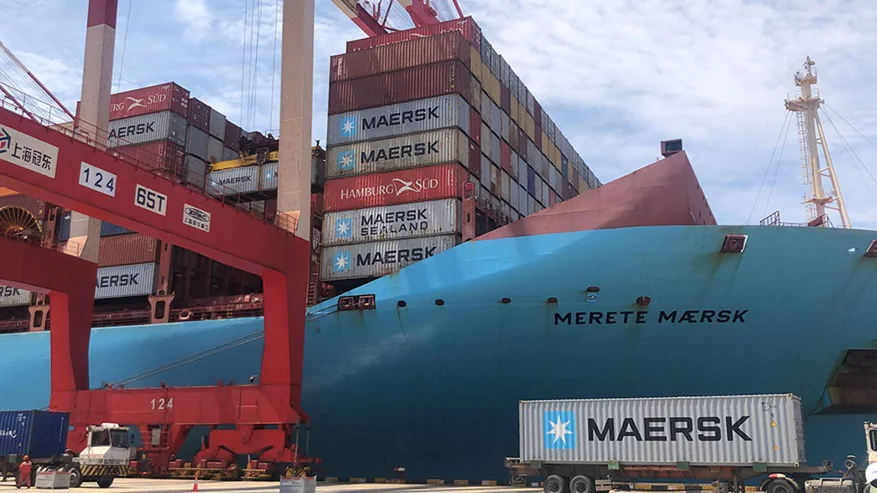-
PH, Korea forge mutual recognition to boost fishery exports
-
The Philippine Department of Agriculture and the Korea Ministry of Food and Drug Safety (MFDS) met to finalize the plans for the mutual recognition agreement (MRA) on food safety of Philippine exports to Korea
-
The mutual recognition pact between MFDS and the DA – Bureau of Fisheries and Aquatic Resources (DA-BFAR) is set for execution on June 20, 2022
-
The Philippines will be the first fisheries trading partner country to adapt the e-health certification system of fresh and processed fishery products bound for Korea
-
Agriculture Secretary William Dar said that the agreement will help push seafood and fisheries exports while ensuring food safety for Korean consumers
-
The Philippines enjoys a favorable balance of trade with Korea, registering a surplus of more than US$ 288 million in 2021
The Philippines and the Republic of Korea will forge a mutual recognition pact to boost fishery exports by way of a special mutual recognition agreement (MRA) between the Department of Agriculture and the Korea Ministry of Food and Drug Safety (MFDS).
Agriculture Secretary William D. Dar and Deputy Director Dr. Soo-jin Cho, with Assistant Director Chan-hwei Lee of the Imported Food Inspection Management under the MFDS, met on May 27 to finalize the plans for the MRA on food safety of Philippine exports to Korea.
The mutual recognition pact between MFDS and the DA – Bureau of Fisheries and Aquatic Resources (DA-BFAR) is set for execution on June 20, 2022. The agriculture attache at the Philippines’ Seoul embassy facilitated and finalized the signing of the special MRA between the two counterpart agencies on December 20, 2021.
In a statement, Secretary Dar highlighted the importance of the MRA meeting as it will build better relationship between the two countries and usher in increased exports of Philippine seafood and fisheries products while ensuring food safety for the Korean consumers.
The Philippines enjoys a favorable balance of trade with Korea, despite some production and logistical challenges during the last two years due to the COVID-19 pandemic, registering a surplus of more than US$ 288 million last year, he said.
MFDS noted that among the nine countries they have an MRA, the Philippines is to date the fastest to implement after six months of finalization. The country will be also the first among the fisheries trading partners of MFDS to adapt the e-certification system, said Dr. Cho.
The MRA will also facilitate digitalization and efficient export document submission through the implementation of e-health certification of fresh and processed fishery products from the Philippines bound for Korea, said Maria Aleli Maghirang, agriculture attache to Korea.
In 2021, the Philippines exported US$526 million worth of various farm and fishery products, which is 20 percent higher than in 2020, according to Maghirang. Of the total, fishery products amounted to US$ 29.5 million last year, majority of which are high-value products like octopus, abalone, black tiger prawns, sea cucumber, and smoked tuna.
The Korean mission also visited Cebu and General Santos to inspect the operations and food safety compliance of three Filipino agri-fishery processing business firms, namely: Siargao Bounty Seafood Corp.; Philippine Union Frozen Fish Inc.; and MK Smoked Fish Corporation. They are leading exporters of Philippine octopus, abalone, and smoked fish to Korea.
Secretary Dar also expressed his gratitude and appreciation to the MFDS for donating a pesticide analytical equipment, through another Korea official development assistance (ODA) project, to enhance the capability of the Bureau of Plant Industry (DA-BPI) to further boost exports of fresh Philippine fruits to Korea.
He also requested MFDS Director Cho for a similar intervention, and continued technical assistance to the DA-BFAR to improve and modernize its laboratory equipment that will pave the way to more exports of fishery products to Korea.









